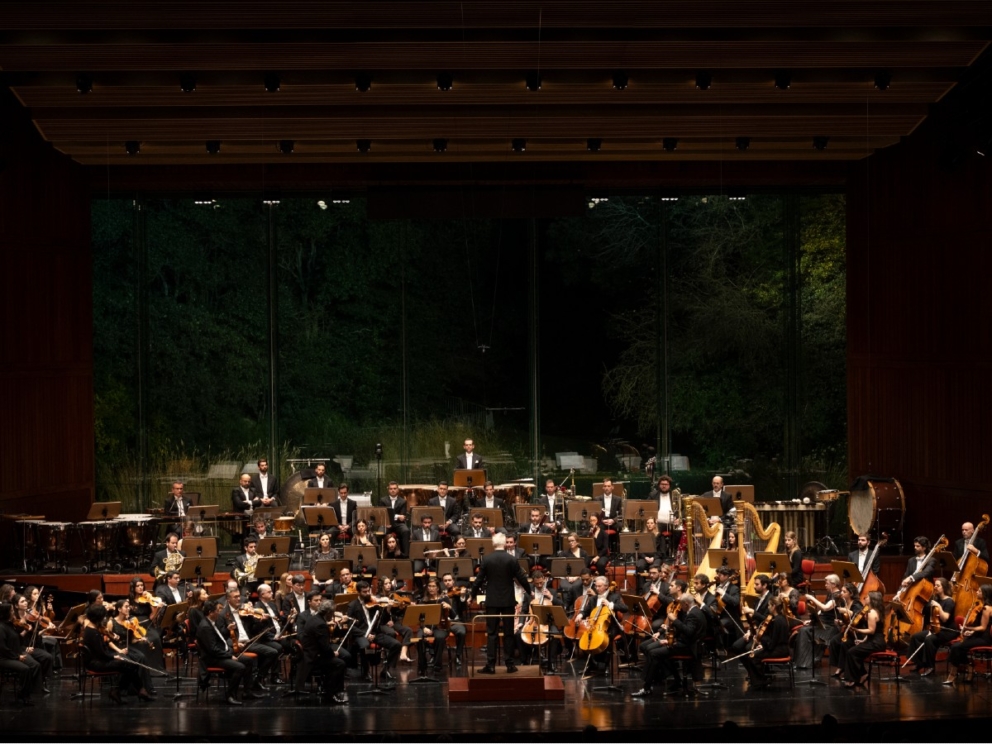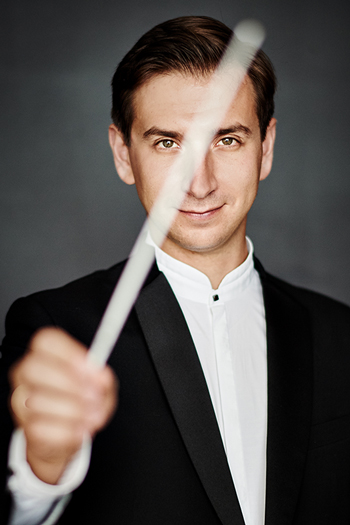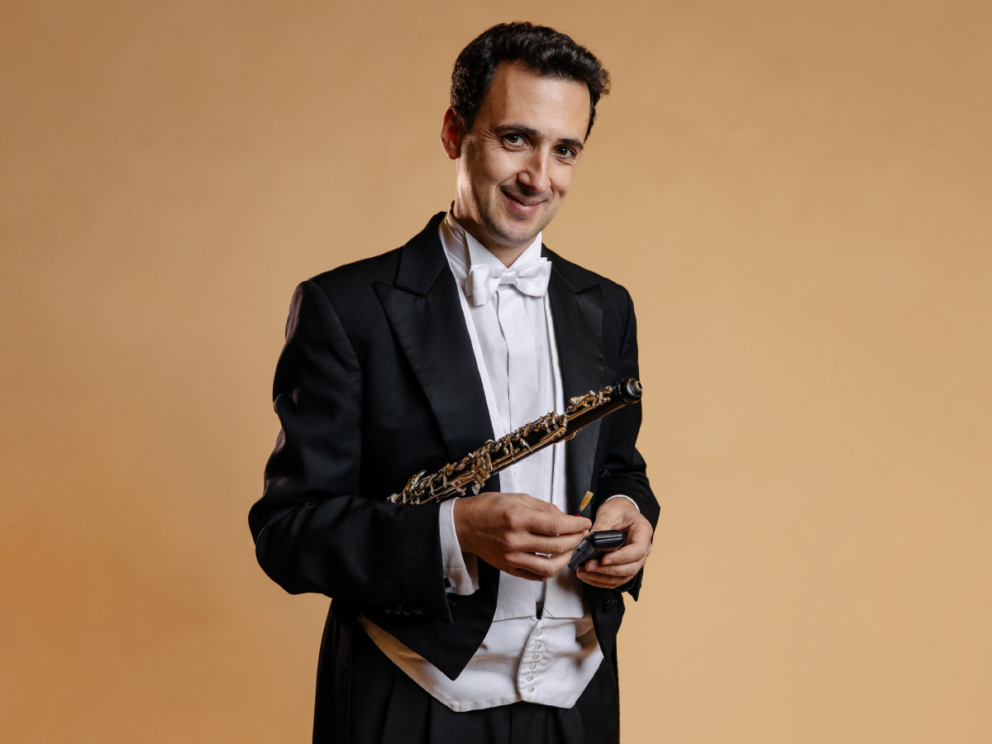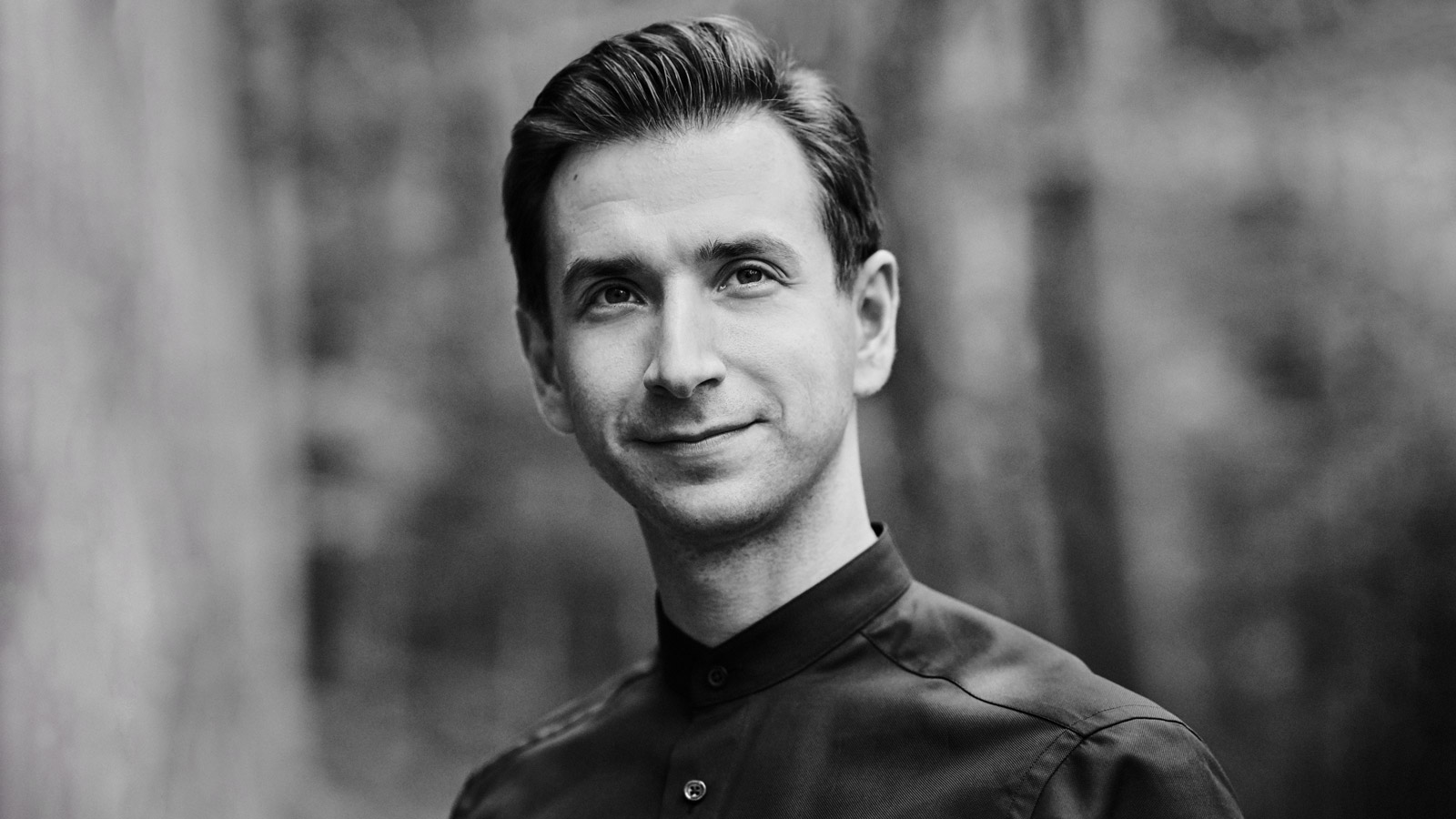Brahms 4th
Gulbenkian Orchestra
Event Slider
Date
- / Cancelled / Sold out
Location
Grand Auditorium Calouste Gulbenkian FoundationDue to reasons of force majeure, the live broadcast of this concert has been cancelled.
Pricing
25% – Under 30
10% – Over 65
Cartão Gulbenkian:
50% – Under 30
15% – Over 65
- Conductor
- Oboe
-

Gulbenkian Orchestra
In 1962, the Calouste Gulbenkian Foundation decided to establish a permanent orchestral ensemble. Originally with only twelve musicians (strings and continuo) it was named “Orquestra de Câmara Gulbenkian”. This collective was successively enlarged and today the “Orquestra Gulbenkian” (the name it has adopted since 1971) has a permanent body of sixty instrumentalists, a number that can be expanded depending on the repertoire.
This structure allows the Gulbenkian Orchestra to interpret works from the Baroque and Classical periods, a significant part of 19th century orchestral literature and much of the music of the 20th century, including works belonging to the current repertoire of the traditional symphonic orchestras. In each season, the orchestra performs on a regular series of concerts at the Gulbenkian Grand Auditorium in Lisbon, where it has had the opportunity of working together with some of leading names of the world of music (conductors and soloists). It has also performed on numerous locations all over Portugal, in an effort to decentralize music and culture.
The orchestra has been constantly expanding its activities in the international level, performing in Europe, Asia Africa, and the Americas. In the recording field, Orquestra Gulbenkian is associated to labels as Philips, Deutsche Grammophon, Hyperion, Teldec, Erato, Adès, Nimbus, Lyrinx, Naïve and Pentatone, among others, and this activity was recognized with several international prizes.
-

Mihhail Gerts
Conductor
Hailed by critics for his “astonishing precision, highly expressive gestures and warmth” as “a name to remember”, the Estonian conductor Mihhail Gerts has made a name for himself following recent successful debuts with the Orchestra Sinfonica dell'Accademia Nazionale di Santa Cecilia, Royal Liverpool Philharmonic, BBC Symphony Orchestra, Antwerp Symphony, and Orchestre Philharmonique de Radio France with acclaimed baritone Matthias Goerne as soloist. Other recent highlights have included debuts with the Orchestre Philharmonique de Luxembourg, Orchestre Philharmonique de Marseille, Helsinki Philharmonic, Stavanger Symphony, Orchestre National des Pays de la Loire, Bremer Philharmoniker and Beethoven Orchester Bonn.
Gerts has established a regular collaboration with orchestras such as RTÉ National Symphony Orchestra, Sinfonia Varsovia, National Philharmonic of Russia and Estonian National Symphony Orchestra, with whom he recently conducted a tour of Germany with violinst Nicola Benedetti. Forthcoming dates include performances with the Shanghai and Guangzhou Symphony Orchestras.
Highlights from the last seasons include a successful debut with the Ulster Orchestra, return to Oulu Sinfonia, where he conducted Hans Rott’s rarely-performed First Symphony, and debut with Opera Saint-Etienne in Benjamin Godard’s Dante, as well as debuts with NHK Symphony Orchestra, Osaka Philharmonic Orchestra and Orchestre National de Lille.
In addition to his symphonic concert career, Gerts has also gained extensive operatic experience as First Kapellmeister and deputy GMD of the Hagen Theater (2015 to 2017) and resident conductor of the Estonian National Opera (2007 to 2014). During these years, he conducted over forty different productions of opera and ballet, most recently a new production of The Flying Dutchman. As a guest conductor, he has appeared at the Teatro la Fenice, Teatro delle Muse, Mikhailovsky Theater St. Petersburg, Belarus National Opera, and many others.
Gerts studied conducting at the Estonian Academy of Music and the Hochschule für Musik Hanns Eisler, Berlin. In 2011 he received his PhD. From 2013 to 2017 he was a Stipendiate of the Dirigentenforum Programme of the German Music Council, and in 2014 was a finalist in the London Symphony Orchestra’s Donatella Flick Competition and Evgeny Svetlanov Conducting Competition.
-

Pedro Ribeiro
Oboé
Pedro Ribeiro iniciou os seus estudos de oboé na Escola Profissional Artística do Vale do Ave, com Saúl Silva, tendo concluído a licenciatura na Escola Superior de Música do Porto, na classe de Ricardo Lopes. Foi laureado com o 1.º Prémio da Juventude Musical Portuguesa, o Prémio Jovens Músicos, o Prémio Maestro Silva Pereira e o Prémio Revelação Ribeiro da Fonte. Lecionou na Universidade de Aveiro, na Escola Superior de Música do Porto e na Academia Nacional Superior de Orquestra.
É membro do Opus Ensemble, com o qual gravou o CD 2007. Faz também parte do Trivm de Palhetas, da Camerata Senza Misura e do Quinteto Artziz, tendo realizado com este grupo uma digressão pela Índia e Macau. Estreou diversas obras de música de câmara de compositores portugueses e gravou com o Ensemble Mediterrain o CD Música Contemporânea Portuguesa.
Tocou como solista com a Orquestra Gulbenkian, a Filarmónica da UNAM (México), a Sinfónica de Zurique, a Landesjugendkammer Orchester Nordrhein-Westfalen, a Musique Militaire du Luxembourg, a Sinfonieta de Lisboa, a Orquestra do Algarve e a Filarmonia das Beiras. Além dos festivais de música nacionais, participou no Jeunes Solistes Europeénnes (Luxemburgo) e no Stellenbosch International Chamber Music Festival (África do Sul).
É membro da Orquestra Gulbenkian desde 2000, tendo assumido em 2006 as funções de 1.º Oboé. Em 2005 integrou a City of Birmingham Symphony Orchestra, como 1.º Oboé convidado, tendo realizado concertos em Birmingham e nos BBC Proms, em Londres.
Richard Wagner
Prelude and Liebestod from Tristan und Isolde
Richard Strauss
Oboe Concerto in D major
— Intermission 20 min —
Johannes Brahms
Symphony No. 4, in E minor, op. 98
It is hard to imagine music that so perfectly represents love and desire, uncertainties and romantic raptures, as the Prelude to Tristan und Isolde. Nor is it easy to find such poignant notes for the tragic death of one of the lovers as the one we hear in Liebestod. A sumptuous and intense symphonic dive which is then enhanced by the virtuoso musical discourses of the Oboe Concerto by R. Strauss and Brahms’ Symphony No. 4.
Sponsor Gulbenkian Music
The Calouste Gulbenkian Foundation reserves the right to collect and keep records of images, sounds and voice for the diffusion and preservation of the memory of its cultural and artistic activity. For further information, please contact us through the Information Request form.
